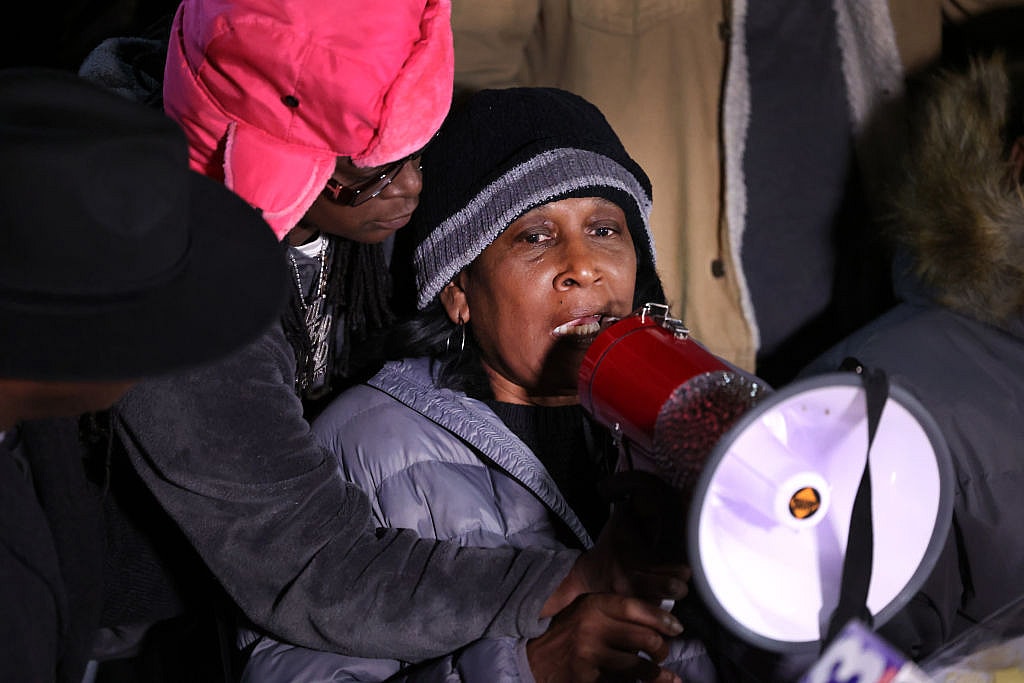On most weekends, Tyre Nichols would head to the city park, train his camera on the sky and wait for the sun to set.
“Photography helps me look at the world in a more creative way. It expresses me in ways I cannot write down for people,” he wrote on his website. He preferred landscapes and loved the glow of sunsets most, his family has said.
“My vision is to bring my viewers deep into what I am seeing through my eye and out through my lens,” Nichols wrote. “People have a story to tell, why not capture it.”

Nichols, a 29-year-old father, was on his way home from taking pictures of the sky on Jan. 7, when police pulled him over. He was just a few minutes from the home he shared with his mother and stepfather, when he was killed in what authorities have described as a brutal attack by five Memphis police officers, who have since been charged with second-degree murder and other offenses.
“Nobody’s perfect, nobody. But he was damn near,” his mother, RowVaughn Wells, said at a news conference this week, moments after she watched the video of her son being beaten to death. “He was damn near perfect.”
He was the baby of their family, born 11 years after his closest siblings. He had a 4-year-old son and worked hard to better himself as a father, his family said. He was an avid skateboarder from Sacramento, California, and came to Memphis just before the pandemic and got stuck. But he was fine with it because he was with his mother, and they were incredibly close, Wells said. He had her name tattooed on his arm.
Friends at a memorial service this week described him as joyful and lovable.
“This man walked into a room, and everyone loved him,” said Angelina Paxton, a friend who traveled to Memphis from California for the service.
Growing up in Sacramento, Nichols spent much of his time at a skate park on the outskirts of the city. There, he met a youth pastor and his wife from a local church. They found Nichols energetic and fun-spirited, with a quick wit to make everyone laugh.
“He was doing the crazy tricks that no one really wanted to try,” said Curtis Chapman, who led the youth ministry for about 10 years.
But away from the laughter and fun of the youth group, Nichols would show up at Chapman’s house to talk about life – including coming to grips with being a young parent.
“What drew me to Tyre was just – he’s real,” Chapman said. “I wouldn’t hear from him, and then he would just show up. He would talk about being a dad and wanting to be a good dad and seeking advice.”
Former Sacramento Bee reporter Bryan Anderson tweeted a video of a 2018 interview with Nichols, who had been waiting at the Department of Motor Vehicles office for more than six hours in nearly 100-degree heat. Nichols smiled, sort of chuckled, as he described the “agonizing” and “agitating” wait.
Anderson, who also has worked for The Associated Press, wrote that he recalls Nichols as “an upbeat and remarkably patient young man, despite navigating a difficult circumstance.”

His mother said she raised him to love everyone openly — until they give you a reason not to. So Nichols was quick to make friends.
In Memphis, Nichols went to Starbucks every morning, and Nate Spates Jr. would hang out with him there. They chatted about sports or life. Spates was with his wife once when they ran into Nichols there, and they all talked for a couple of hours. Afterwards, Spates said his wife commented, “He’s got such a good spirit and soul and calm presence.”
Nichols worked second shift at FedEx with his stepfather. Every day, they’d come home together on their break at 7 p.m., and his mother would have a meal waiting for them.
Wells said she’d offered to buy her son Jordans, the popular athletic shoes, but he didn’t want them.
“He was just his own person,” she said. “He didn’t follow what anyone else was doing.”
When he wasn’t working, he went to the park to skateboard and take pictures. His website, called This California Kid, starts with an invitation: “Welcome to the world through my eyes.”
He included a gallery of what he considered his masterpieces: bridges and railroad tracks rendered in black and white, the neon lights of Beale Street at night. He took pictures of pink flowers, sunsets over the Mississippi River, fields of grass, statues of Elvis. He highlights a quote from another photographer: “A good photographer must love life,” it begins.
After she watched the video of her son’s death, she stood with her family and their lawyers at a lectern, shaking, to convey what the world lost.
A lawyer described the beating shown in the video — “he was a human pinata” — and Wells turned her head away, burying her face into her hands.
In the video, which will be released Friday to the public, Nichols is heard saying he just wants to go home, family lawyers said. He was less than 100 yards from his mother’s house.
Lawyers described the last words Nichols is heard saying — calling for his mom, three times.
“Oh my God,” she wailed as they spoke. “Oh my God.”
She still finds herself waiting for him to walk in the door every day at 7 p.m.
“It’s not even real to me right now. I don’t have any feelings right now,” she said. “I know my son Tyre is not here with me anymore. He will never walk through that door again.”
__
AP reporter Adrian Sainz contributed from Memphis, and AP researcher Rhonda Shafner from New York. Loller reported from Nashville, Beam from Sacramento and Galofaro from Louisville, Kentucky.
Editor’s note: This story has been updated to reflect the correct age difference between Tyre Nichols and his siblings.

